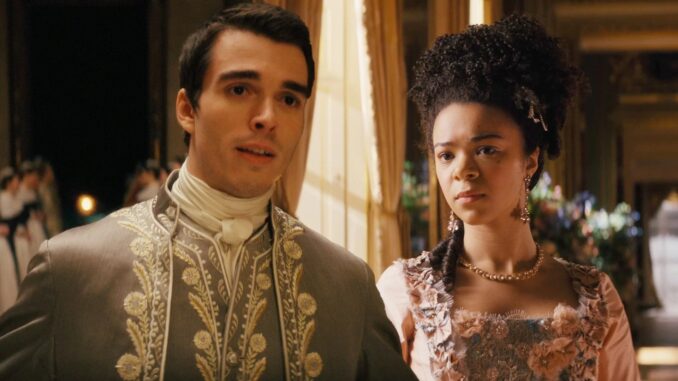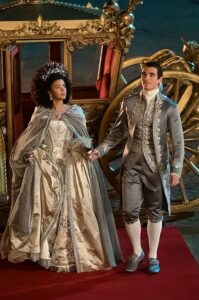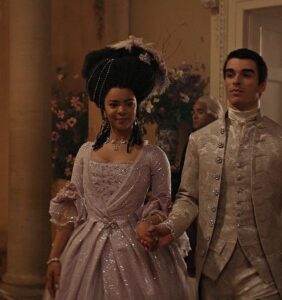
Where Has the Natural Hair in “Queen Charlotte” Been All My Life?
If you’re anything like me, then you’ve spent the last few days binge-watching “Queen Charlotte: A Bridgerton Story” on Netflix. As you might have guessed, the show is a prequel to the hit series “Bridgerton,” and chronicles the royal’s experience as queen of the British empire.
Though a fictional historical drama, my favourite part of the original show, and now the spinoff, is that Queen Charlotte is Black. Not only is she Black, but she has natural, curly hair. While the industry has made strides in casting more actors that fit that description, the reality is that in today’s media landscape, there are still simply far too few Black women with their natural coily hair on television.
This lack of representation has had a host of consequences, from people disliking the way their hair grows out of their heads to others with straighter hair textures failing to understand the complexities of curly and coily hair. So stories with lead characters like this one are long overdue — something that the writers and beauty departments recognise.

“Our young Queen Charlotte really knows who she is and where she goes, and then, as she adapts to this world, the hair becomes more elaborate,” Nic Collins, the hair and makeup department head of “Queen Charlotte” previously told POPSUGAR. As the show progresses, we see the queen slowly starting to become more playful and experimental with her hair, and it continues to be a way for her to express herself as continues to find herself during her reign.
If that journey sounds familiar, it’s one that Black women have gone through for years. Hair within the Black community is a feature that is often politicised, over-policed, and remains a general point of contention in a society that places value on non-Black physical attributes. Loving my own natural hair has been a process, one that I’m not sure is over just yet. Still, to see a big, curly afro be celebrated and catered to with such reverence in this series touched something in me that I didn’t realise it would.

While I recognise that there is still work to be done in order to truly love my natural hair, this moment taught me that there is no such thing as too much representation. Whether it’s on YouTube, TV, or social media, every time I see content involving Black women embracing the texture they were born with, it gets me one step closer to feeling truly comfortable with my own — and that’s something that I will never take for granted.